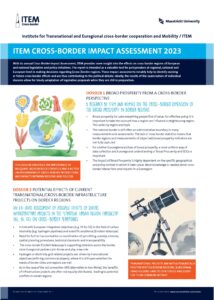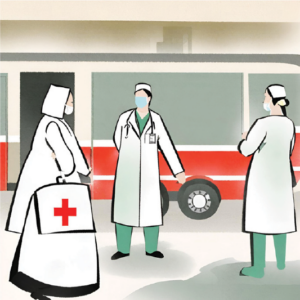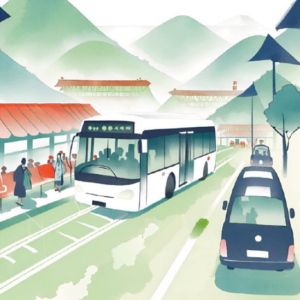This year’s impact assessment survey was conducted between February 2023 and March 2023 and distributed to ITEM stakeholders and other interested parties. ITEM received numerous written responses to this survey from various partners. In addition, topics may also be highlighted in the context of ITEM’s daily activities under the ITEM annual cycle. Another way to identify topics is to have ITEM conduct a quick scan of policy initiatives or programs. After screening the submitted dossiers and topics, the final selection of dossiers was made based on the advice of the Cross-Border Impact Assessment Working Group.
The current research dossiers are the result of a successful collaboration between ITEM, its researchers and its partners.






